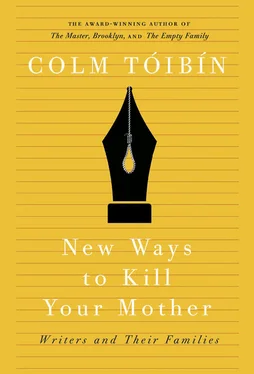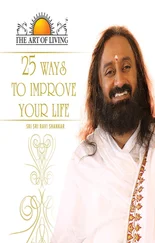But as the century went on, novelists had to contemplate the afterlives of Elizabeth and Darcy, Fanny Price and Edmund Bertram, had to deal with the fact that these novels made families out of the very act of breaking them. It was clear that since something fundamental had been done already in the novel to the idea of parents, something would also have to be done to the very idea of marriage itself, since marriage was a dilution of the autonomy of the individual protagonist. There is a line that can be drawn between Trollope and George Eliot and Henry James in which all three dramatize precisely the same scene, each of them alert to its implications. Each of them is alert to the power of the lone, unattached male figure in the novel. This male figure is not openly looking for a wife, and this is what makes him dangerous, more dangerous than any aunt has been. He can have an uneasy sexual presence with a way of noticing and listening. He can have the power of conscience, and the pure strength of someone who does not have obvious desires. He can represent the novelist in the novel, but is also from the future, from a world in which the making of marriages is no longer the main subject for a novelist. Once more, it is his solitude that gives him power, as Darcy in Pride and Prejudice derives his power from his solitude as much as his fortune, until he marries Elizabeth.
There is a chapter in Trollope’s novel Phineas Finn , published in 1869, called ‘Lady Laura Kennedy’s Headache’, when Laura Kennedy tells Phineas that her marriage has been a mistake. In doing so, she uses his first name, not having done so before, and becomes oddly intimate with him while making clear, as she says, that ‘I have blundered as fools blunder, thinking that I was clever enough to pick my footsteps aright without asking counsel from any one. I have blundered and stumbled and fallen, and now I am so bruised that I am not able to stand upon my feet.’
As they talk she compares Phineas, who is young, sympathetic, handsome, free, to her dry, bullying husband. As she does so, her husband approaches, and bullies her further, doing so in the presence of Phineas, who is now in possession of very dark knowledge indeed.
In George Eliot’s Daniel Deronda , published in 1876, Deronda himself comes into possession of precisely the same knowledge when Gwendolen takes him into her confidence. She, like Lady Laura Kennedy, has married a bully. As in Phineas Finn , the reader learns how dangerous the Phineas or Daniel figure is, how much the bullying husband will resent him and how much the wife, locked in a nightmare marriage, will depend on him not only in her dreams but in the construction of her own narrative. Phineas and Daniel operate irresponsibly in this aspect of the novel, they are like cells who do not duplicate, or atoms whose power cannot be penetrated or dissolved. They stand outside a marriage as a force even more destructive than the husband himself, someone outside the family, utterly attractive, stealing power for themselves. A woman talking about her husband to another man offers an electric charge to the novel, a charge reflected in the very response of Gwendolen to her own confession:
She broke off, and with agitated lips looked at Deronda, but the expression on his face pierced her with an entirely new feeling. He was under the baffling difficulty of discerning, that what he had been urging on her was thrown into the pallid distance of mere thought before the outburst of her habitual emotion. It was as if he saw her drowning while his limbs were bound. The pained compassion which was spread over his features as he watched her, affected her with a compunction unlike any she had felt before…
In the meantime Grandcourt, the tyrant husband, watched his wife and Daniel: ‘No movement of Gwendolen in relation to Daniel escaped him.’ In a later scene, when Gwendolen once more appeals to Deronda to understand what is happening in her marriage and he tells her, ‘My only regret is, that I can be of so little use to you,’ the writing takes on a force, filled with shimmering movement and dramatic excitement. ‘Words,’ she writes,
seemed to have no more rescue in them than if he had been beholding a vessel in peril of wreck — the poor ship with its many-lived anguish beaten by the inescapable storm. How could he grasp the long-growing process of this young creature’s wretchedness? — how arrest and change it with a sentence? He was afraid of his own voice. The words that rushed into his mind seemed in their feebleness nothing better than despair made audible, or than that insensibility to another’s hardship which applies precept to soothe pain. He felt himself holding a crowd of words imprisoned within his lips, as if the letting them escape would be a violation of awe before the mysteries of our human lot. The thought that urged itself foremost was — ‘Confess everything to your husband; leave nothing concealed’ — the words carried in his mind a vision of reasons which would have needed much fuller expression for Gwendolen to apprehend them, but before he had begun to utter those brief sentences, the door opened and the husband entered.
Henry James, by the time he began The Portrait of a Lady in 1879, had followed the serialization of Daniel Deronda . He read the book carefully and disapproved of it and then took what he needed from it. In Ralph Touchett he created another male whose role was both playful and pivotal, whose scepticism and illness undermined the very idea of attachment. He operates as a sort of surrogate novelist in the book, conspiring with his father to leave Isabel a fortune so that he can amuse himself watching what she might do with freedom. When Isabel marries Osmond, Ralph becomes the one who guesses how unhappy she is, and how bullying and cold her husband. As he lies dying, once more the unhappy wife finds in a single, unattached figure a saviour, someone who will help her break the glass of her marriage. ‘I believe I ruined you,’ he said, as she replies starkly: ‘He married me for the money’ and then later in the scene: ‘Oh yes, I’ve been punished.’
Soon afterwards Ralph dies, and the family is broken. When his mother Mrs Touchett hears that Madame Merle has gone back to America, she offers one of the truest and funniest lines of the book: ‘To America? She must have done something very bad.’ And Isabel returns to her husband, and there is a sense at the end of the book that she has not returned to be his wife, part of his family, but with a new power she has found, a resource that will allow her to resist him, repel him, move in the world alone and free not only of the family she inherited and came into, but the one she chose and sought to make.
W. B. Yeats: New Ways to Kill Your Father
For a number of sibling artists who flourished in the last quarter of the nineteenth century and the first quarter of the twentieth century — Heinrich Mann and Thomas Mann; Henry James and William James; Virginia Woolf and Vanessa Bell; W. B. Yeats and Jack Yeats — the death of the father, an overwhelming presence while alive, or the gradual and often dramatic enactment of a metaphorical killing, allowed the children a strange new freedom, the right to become themselves, and then do battle with each other over politics and style.
In the case of the Manns and Virginia Woolf and Vanessa Bell, the literal death of their father when they were young and unformed allowed them to move to new quarters, both physically and emotionally, and removed a burden whose shadow alone would continue to haunt them. In the case of the James brothers and the Yeats brothers, the burden remained a living reality. In his book Yeats: The Man and the Masks , Richard Ellmann quotes Ivan Karamazov: ‘Who doesn’t desire his father’s death?’ Ellmann writes:
Читать дальше












